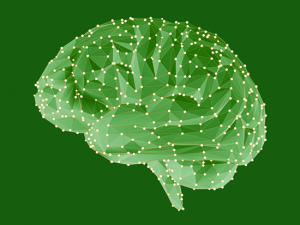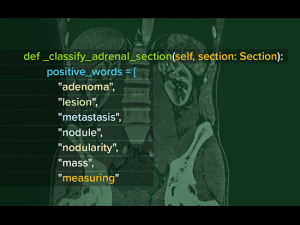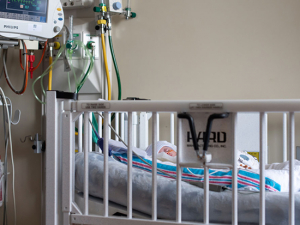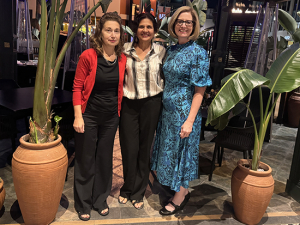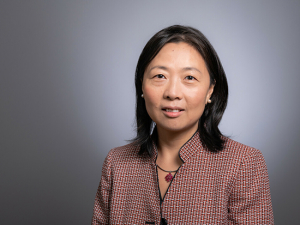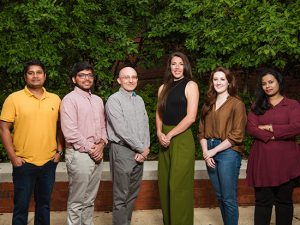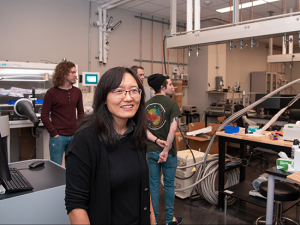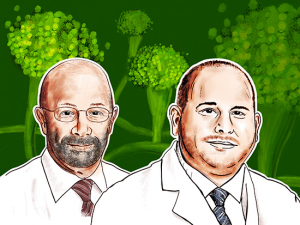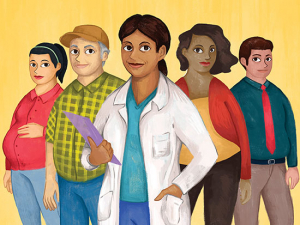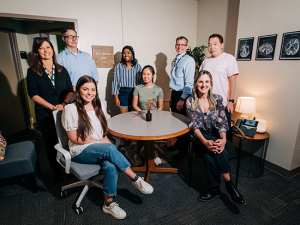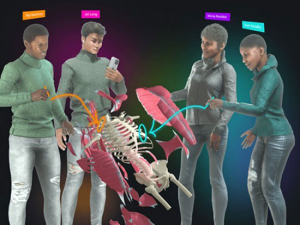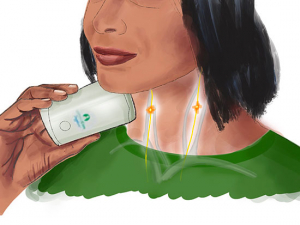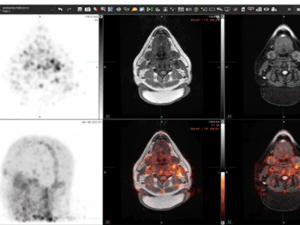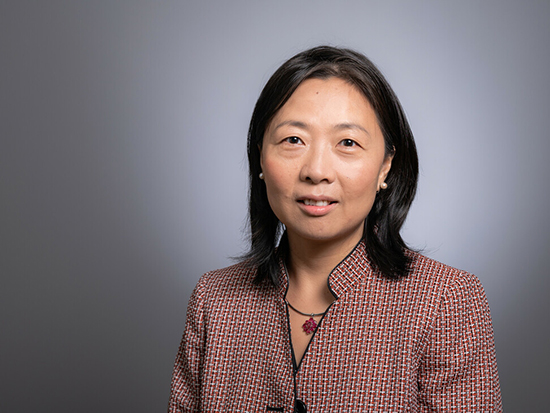 Zhen Cong, Ph.D., professor in the Department of Environmental Health Sciences in the School of Public Health and director of the school’s Climate and Health Initiative.
Zhen Cong, Ph.D., professor in the Department of Environmental Health Sciences in the School of Public Health and director of the school’s Climate and Health Initiative.
Zhen Cong, Ph.D., professor in the Department of Environmental Health Sciences in the School of Public Health and director of the school’s Climate and Health Initiative, came to the topic by a somewhat unorthodox route.
Cong, a gerontologist by training, earned her doctorate at the University of Southern California and focused her research on the well-being of older adults and intergenerational support mechanisms. But after she became a faculty member at Texas Tech University in Lubbock in 2008, she grew interested in the effects of tornadoes and other natural disasters on older adults. This was only natural; tornadoes are a regular occurence in west Texas, where the season is at its height from April to June. Lubbock has experienced more than 70 of them over the past 50 years, including the devastating storm that roared through downtown on the night of May 11, 1970, and killed 26 people. Studies of that storm by meteorologist Ken Fujita led to his development of the Fujita scale for measuring tornadoes (the Lubbock storm was classified as an F–5, the most powerful), and Texas Tech faculty member Kishor Mehta, Ph.D., led the development of the replacement Enhanced Fujita (EF) scale that is now used.
Disaster preparedness of older adults
Over the past decade-plus, starting with the aftermath of the devastating tornadoes in Tuscaloosa and in Joplin, Missouri, in 2011, Cong has tracked the disaster preparedness of older adults and studied the characteristics and behaviors of populations who do particularly well and poorly after a natural disaster. Older adults (those 65 and above) “are overrepresented among those killed and injured during tornadoes and hurricanes, and age is regarded as an indicator of vulnerability to disasters,” Cong and co-author Daan Liang, Ph.D., of the University of Alabama, pointed out in a 2022 paper on the health and mental health impacts of tornadoes. In the Joplin tornado, they noted, people over age 65 accounted for 15 percent of the population but 38 percent of the fatalities.
Severe weather has become more frequent and destructive in the United States, and the problem is expected to grow worse, increasing the number of communities exposed to tornadoes, hurricanes, extreme heat and drought, and other climate-related disasters. This is why School of Public Health Dean Paul Erwin, M.D., launched the Climate and Health Initiative with Department of Environmental Health Sciences Chair Jeffrey Wickliffe, Ph.D., and committed to a series of coordinated hires to lead and support its work, starting with Cong’s arrival at UAB in January 2023.
"The crisis of our time"
“This is the crisis of our time,” Cong said. “I have been an interdisciplinary researcher for a long time, working across engineering, atmospheric science, nursing, social work and more. What UAB offered was the promise that there will be a group of people who are committed to this effort — that we will have in-house resources to work together to build this hub. I was attracted by the vision of the dean and chair and really felt their passion in this area. I am looking forward to opening this initiative to faculty and students across the university. We want people to join us.”
Cong’s research, which is supported by major grants from the National Institutes of Health and the National Science Foundation, aims to give disaster management practitioners and public officials better data to protect the most vulnerable individuals during future disasters.
In all phases of a weather disaster, older adults are uniquely vulnerable, Cong said — “in preparedness before an event, mitigation during an event itself and in the response to a disaster.” Older adults are more likely to have preexisting health conditions that make it difficult to cope with disasters, their mobility is limited, and they are more sensitive to extremes of heat and cold. Her research has found that older adults are more reluctant to engage in discussion about planning for disasters as well — and more likely to be affected by family members’ declining mental health in the aftermath of a storm.
The advantages of age
But in other ways, older adults have advantages, Cong has found. They tend to show greater resilience to financial loss and stress after disasters, and some older adults actually report improved physical and mental health after a disaster — possibly because helping their families cope and recover allows them to take on a new role as caregivers. Cong’s work has emphasized community-level vulnerabilities, as opposed to simply looking at individuals’ vulnerabilities in isolation. Community characteristics, including the number of older adults in the area, she has found, affect the likelihood that people whose homes are destroyed in a disaster will want to rebuild or move. An increased number of older adults in a community also raises the odds that residents will increase their preparedness for a future disaster versus becoming apathetic, Cong has found.
Cong’s work led to her selection in 2023 as one of eight members of the inaugural class of NIH Climate and Health Scholars, and she was hosted by the National Institute on Aging. The program’s goal was to better understand how climate change will affect people across the lifespan. The yearlong appointment included an analysis of the NIA’s funded projects “to see what has been done and what the gap is,” she said. It also involved collaborations with other Climate and Health Scholars and outreach to professional organizations.
Cong notes that research into climate change and health can cover a broad range of topics. “Many people can contribute,” she said. “This is an opportunity for researchers from different disciplines to work together on a very important topic. We will have monthly meetings to talk about ideas, publications together and collaborative opportunities.”
Students are needed to take part as well, Cong adds. An undergraduate research assistant is helping her with research projects, and the Climate and Health Initiative will be launching a student fellowship program to give other students the opportunity to work with faculty mentors.
“The Climate and Health Initiative will not be operating in a silo,” Cong said. “We really want people to come and be a part of this.”
